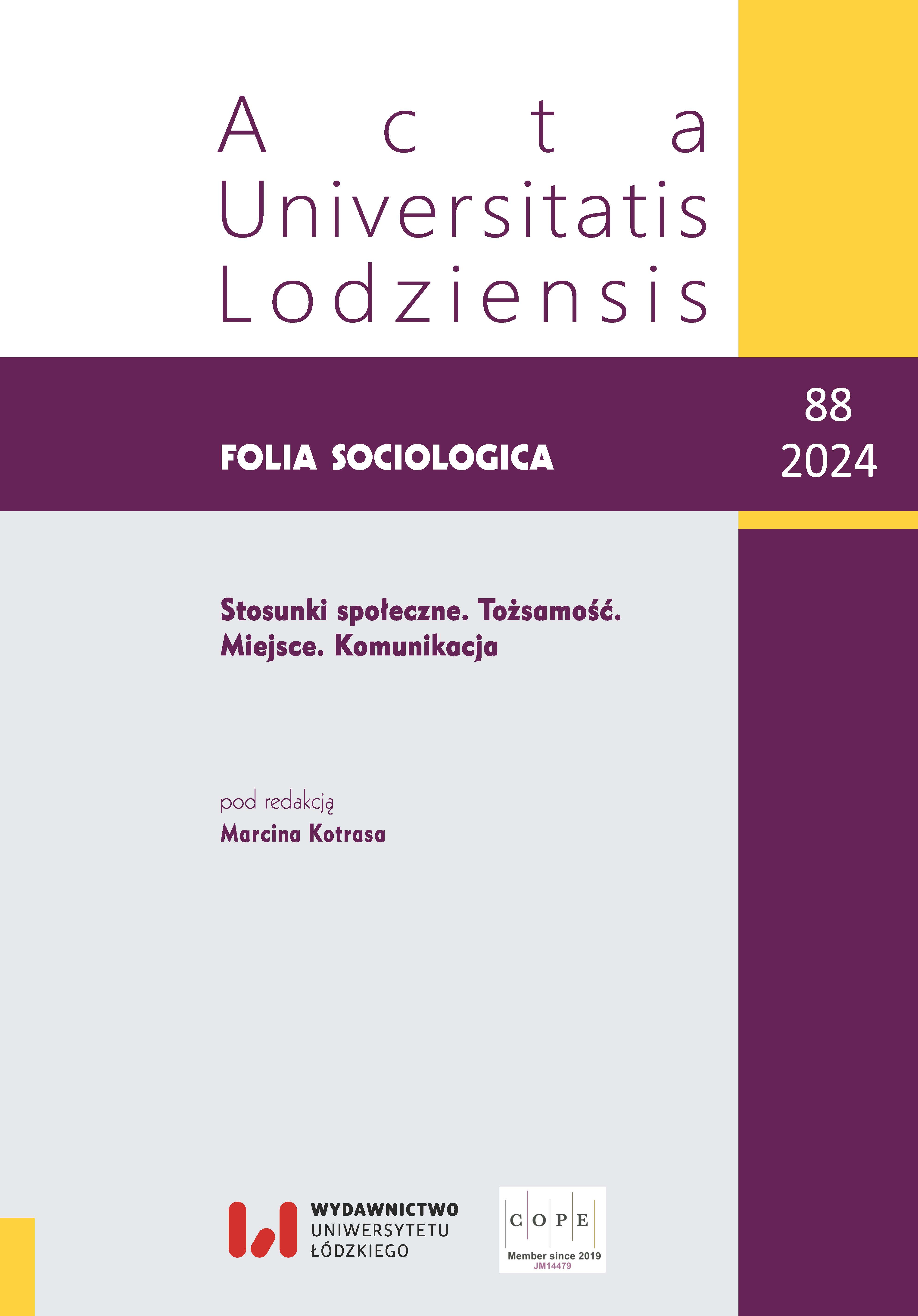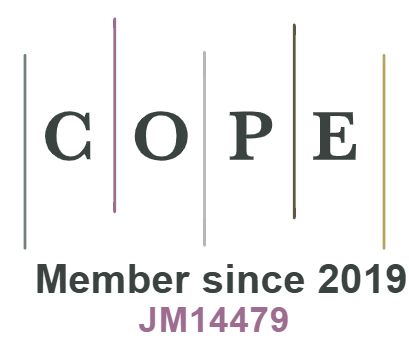Socjalizacja płciowa i postrzeganie płci przez osoby nieheteronormatywne
DOI:
https://doi.org/10.18778/0208-600X.88.06Słowa kluczowe:
gender studies, tożsamość płciowa, coming-out, studia queer, nieheteronormatywnośćAbstrakt
Artykuł koncentruje się na wynikach badań przeprowadzonych na potrzeby pracy licencjackiej zatytułowanej: „Socjalizacja płciowa i postrzeganie płci przez osoby nieheteronormatywne”, w której autorka koncentruje się na socjalizacji płciowej rozmówców o nieheteronormatywnej tożsamości płciowej i/lub seksualnej, ich narracji na temat tożsamości płciowej (w sensie ogólnym, jak i osobistym) i ekspresji płciowej, oczekiwanych od nich rolach społecznych w wyniku płci przypisanej przy urodzeniu oraz ograniczeniach, z jakimi spotykają się w życiu codziennym ze względu na swoją tożsamość płciową. Konstruktywizm społeczny wskazuje, że męskość i kobiecość nie są stałymi, ale zdolnymi do modyfikacji płynnymi wytworami codziennych interakcji. Proces konstruowania własnej płci wiąże się ściśle z dominującym dyskursem definiującym normy męskiego i kobiecego zachowania, które stają się przytłaczająco restrykcyjne w odniesieniu do myślenia i działania jednostki. Na potrzeby omawianego badania zebrano dane z dziewięciu indywidualnych wywiadów pogłębionych wspartych scenariuszem. Podczas tych wywiadów rozmówcy dzielili się swoimi osobistymi historiami na temat wychowania płciowego, wyjaśniali, co oznacza identyfikacja z płciowym spektrum, wskazując na wygląd i opisując swoje doświadczenia związane z coming-outem.
Bibliografia
Bieńkowska M. (2012), Transseksualizm w Polsce. Wymiar indywidualny i społeczny przekraczania binarnego systemu płci, Wydawnictwo Uniwersytetu w Białymstoku, Białystok.
Google Scholar
Fajkowska-Stanik M. (2001), Transseksualizm i rodzina. Przekaz pokoleniowy wzorów relacyjnych w rodzinach transseksualnych kobiet, Wydawnictwo Instytutu Psychologii PAN, Warszawa.
Google Scholar
Gawlicz K. (2009), Negocjowanie znaczenia kategorii płci. Pomiędzy różnicowaniem płciowym a przekraczaniem granic, [w:] Kopciewicz L., Zierkiewicz E., Koniec mitu niewinności? Płeć i seksualność w socjalizacji i edukacji, Wydawnictwo Psychologii i Kultury, Warszawa.
Google Scholar
Giddens A. (2010), Socjologia, Wydawnictwo Naukowe PWN, Warszawa.
Google Scholar
Human Rights Campaign Foundation (2022), Coming Out: Living Authentically as Transgender or Non-Binary. https://reports.hrc.org/coming-out-living-authentically-as-transgender-non-binary (dostęp: 13.01.2023).
Google Scholar
Kochanowski J., Mizielińska J. (2014), Queer studies, [w:] Rudaś-Grodzka M. et al., Encyklopedia gender. Płeć w kulturze, Wydawnictwo Czarna Owca, Warszawa.
Google Scholar
Mazanek A., Dellert D. (2023), Nago. Głośno. Dumnie, HBO Max, prod. Polska.
Google Scholar
Oczko P. (2014), Camp, [w:] Rudaś-Grodzka M. et al., Encyklopedia gender. Płeć w kulturze, Wydawnictwo Czarna Owca, Warszawa.
Google Scholar
Pankowska D. (2005), Wychowanie a role płciowe, Gdańskie Wydawnictwo Psychologiczne, Gdańsk.
Google Scholar
Stowarzyszenie Miłość Nie Wyklucza (2016), Polska Społeczność Nieheteronormatywna. https://mnw.org.pl/app/uploads/2017/08/MNW_Polska_Spolecznosc_Nieheteronormatywna.pdf (dostęp: 13.01.2023).
Google Scholar
Titkow A. (2014), Tożsamość społeczna, [w:] Rudaś-Grodzka M. et al., Encyklopedia gender. Płeć w kulturze, Wydawnictwo Czarna Owca, Warszawa.
Google Scholar
Turban J. (2022), What is Gender Dysphoria?, American Psychiatric Association. https://www.psychiatry.org/patients-families/gender-dysphoria/what-is-gender-dysphoria#section_4 (dostęp: 14.01.2023).
Google Scholar
Pobrania
Opublikowane
Jak cytować
Numer
Dział
Licencja

Utwór dostępny jest na licencji Creative Commons Uznanie autorstwa – Użycie niekomercyjne – Bez utworów zależnych 4.0 Międzynarodowe.










